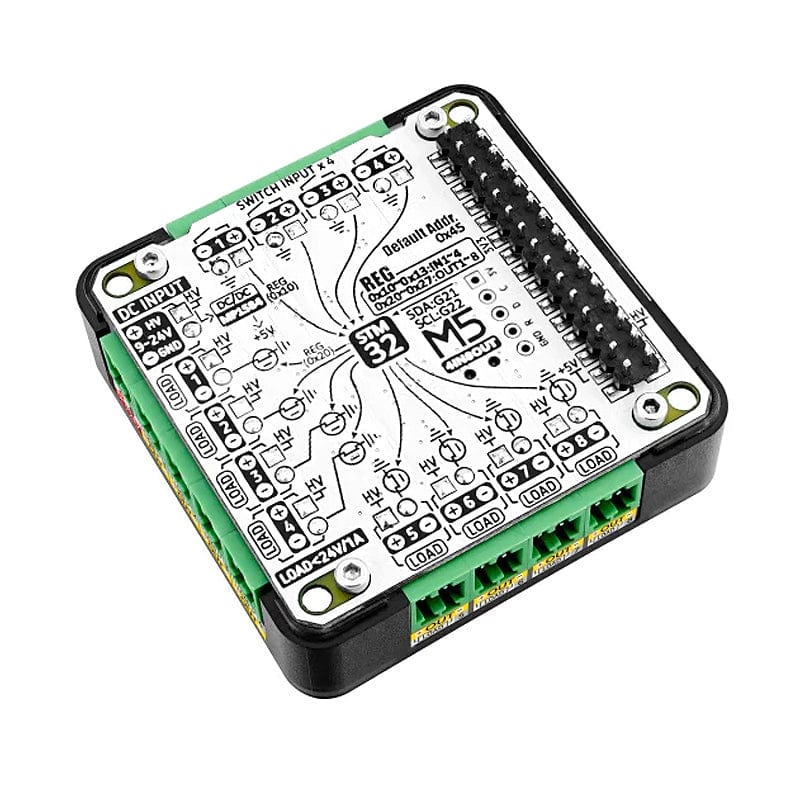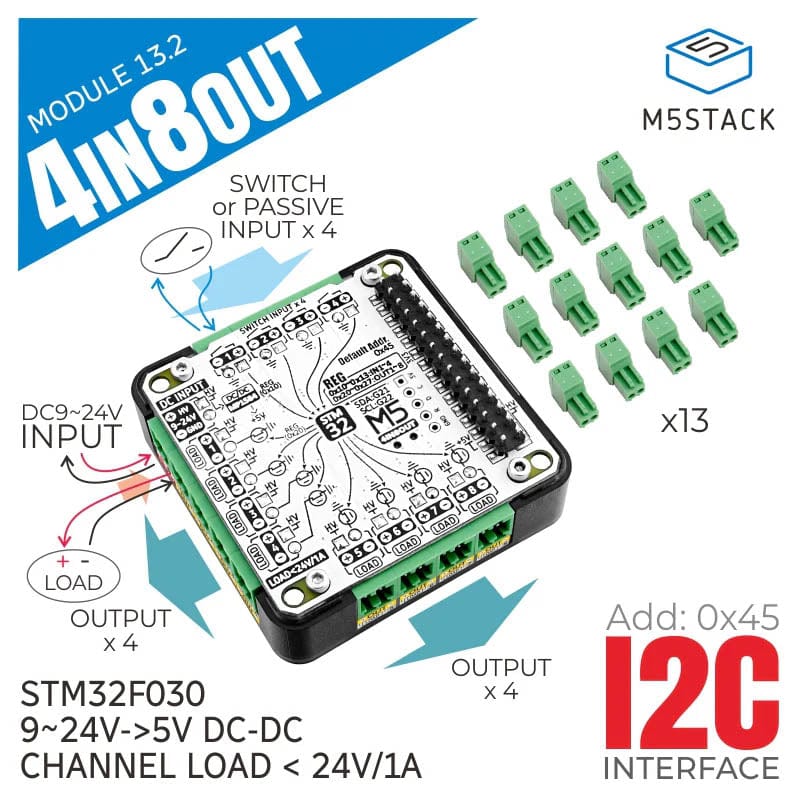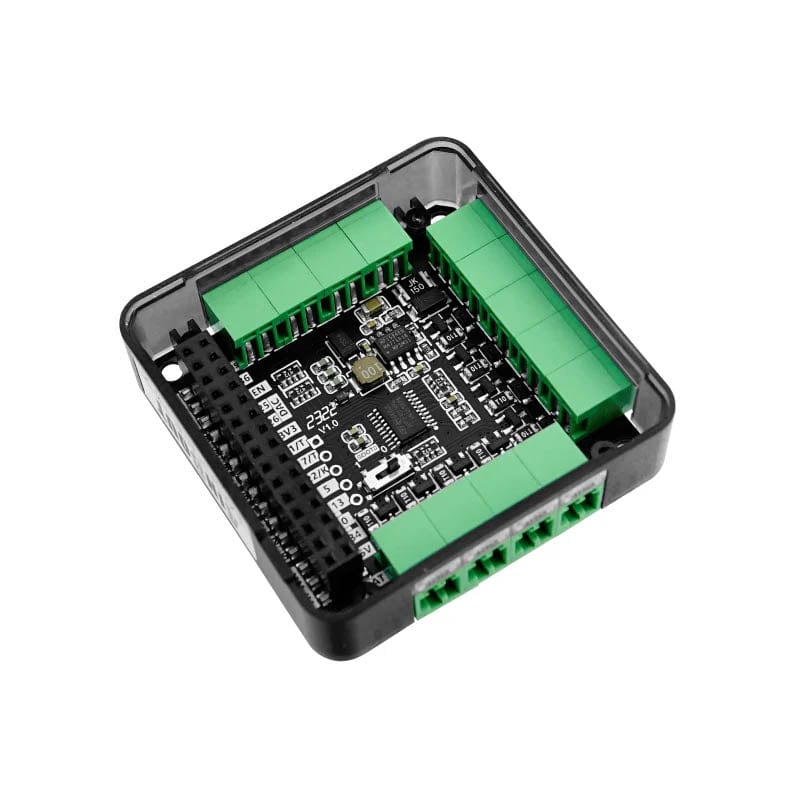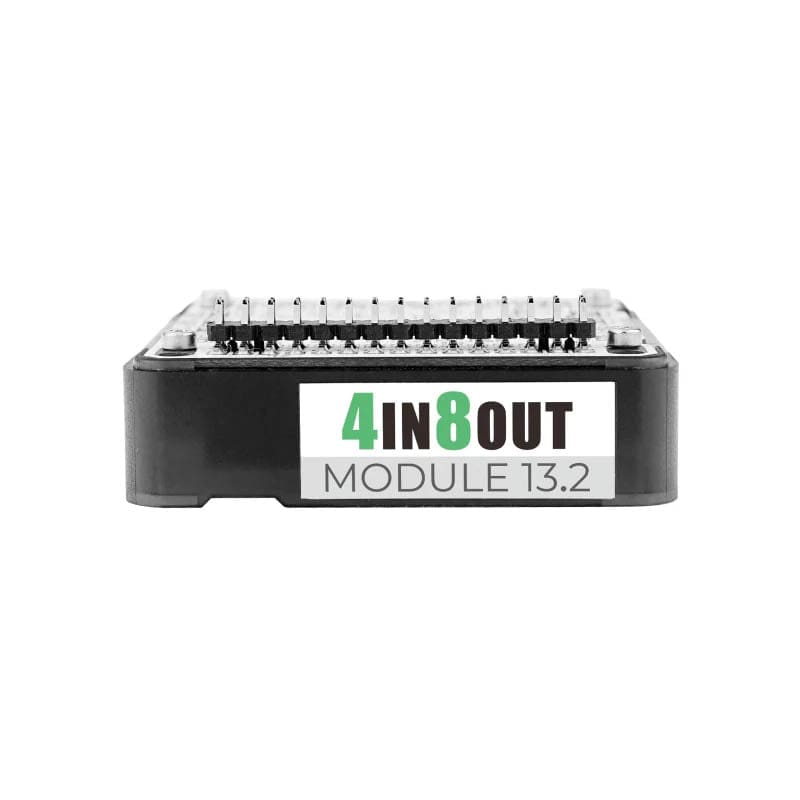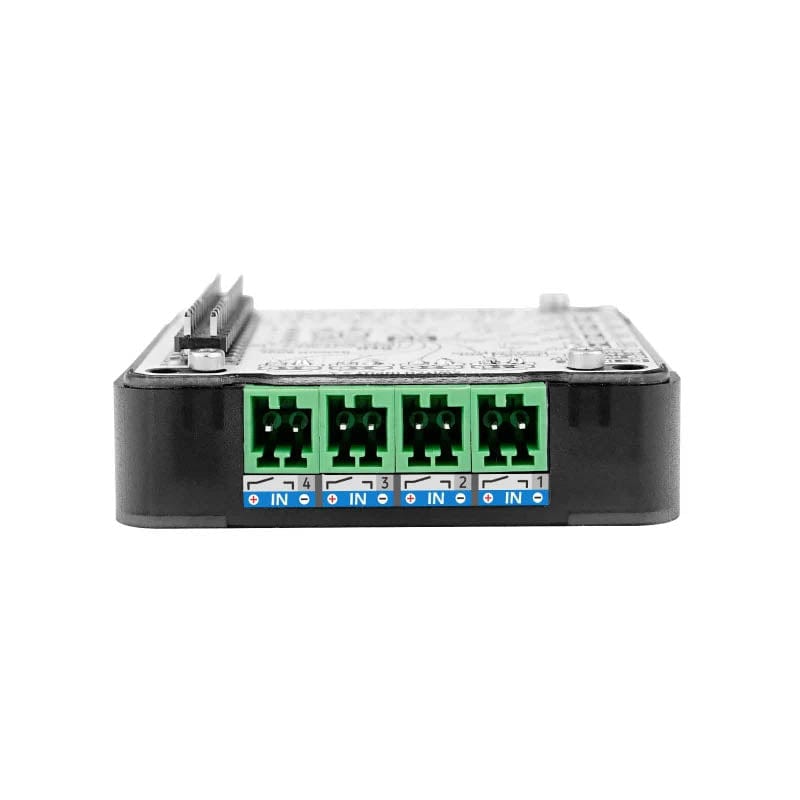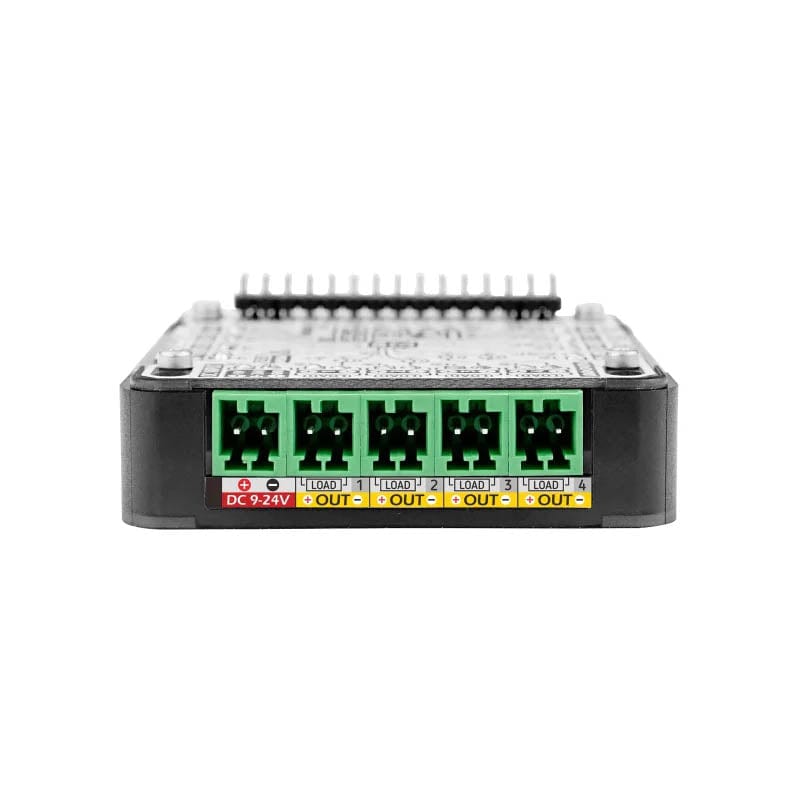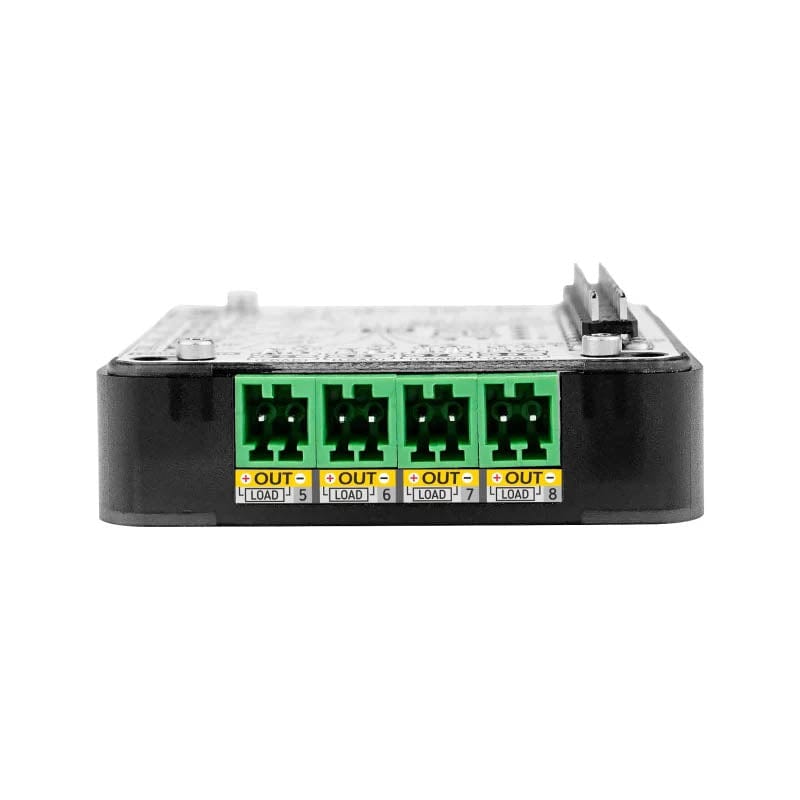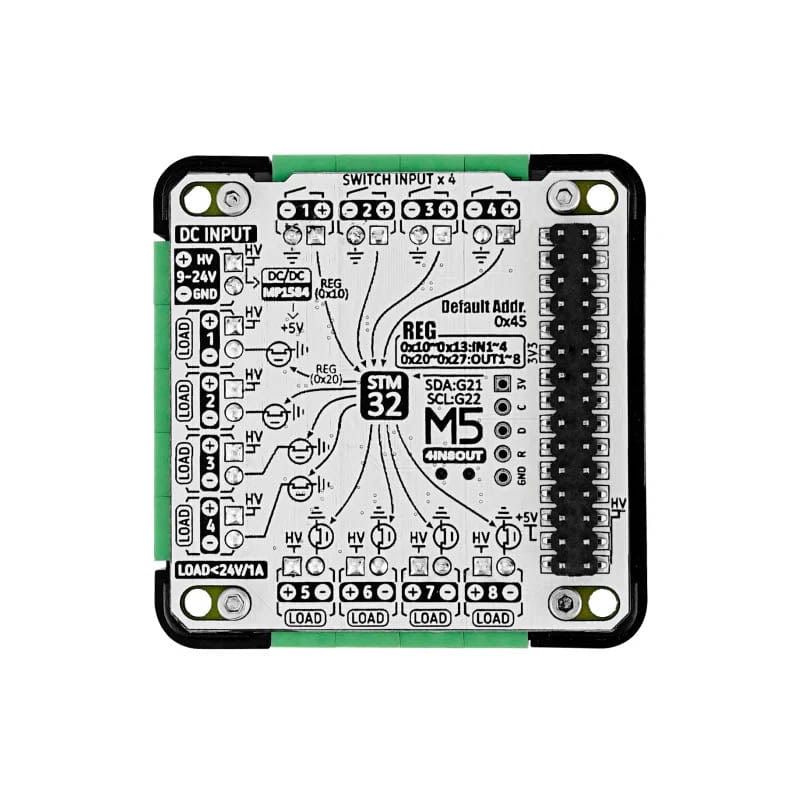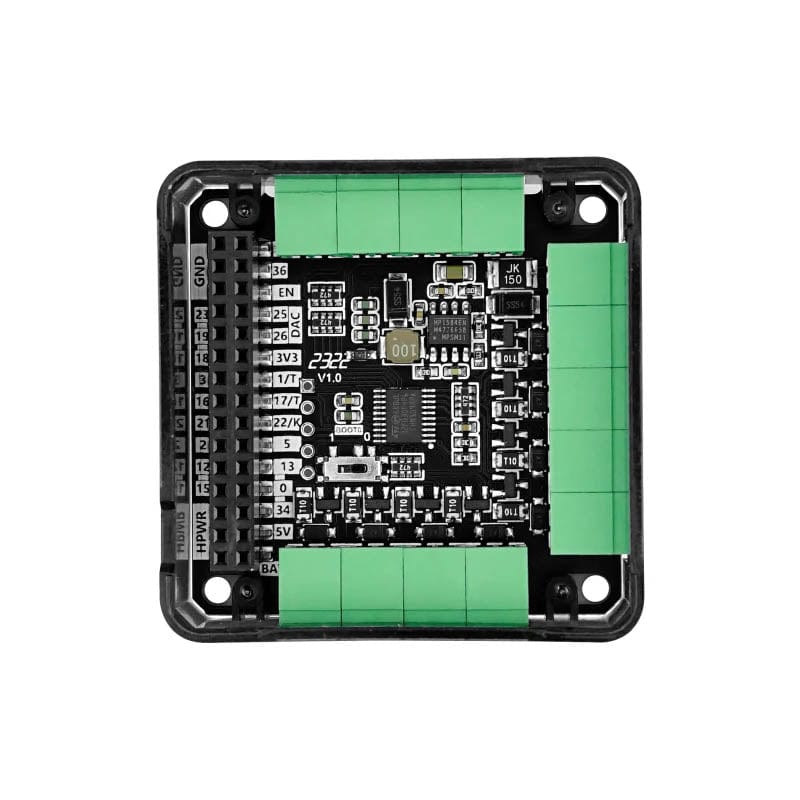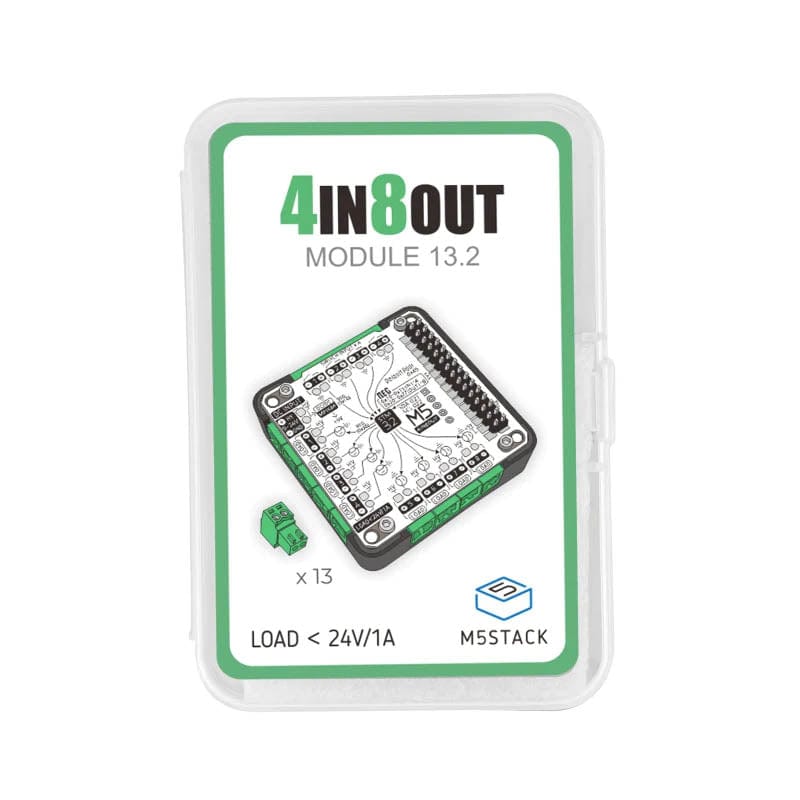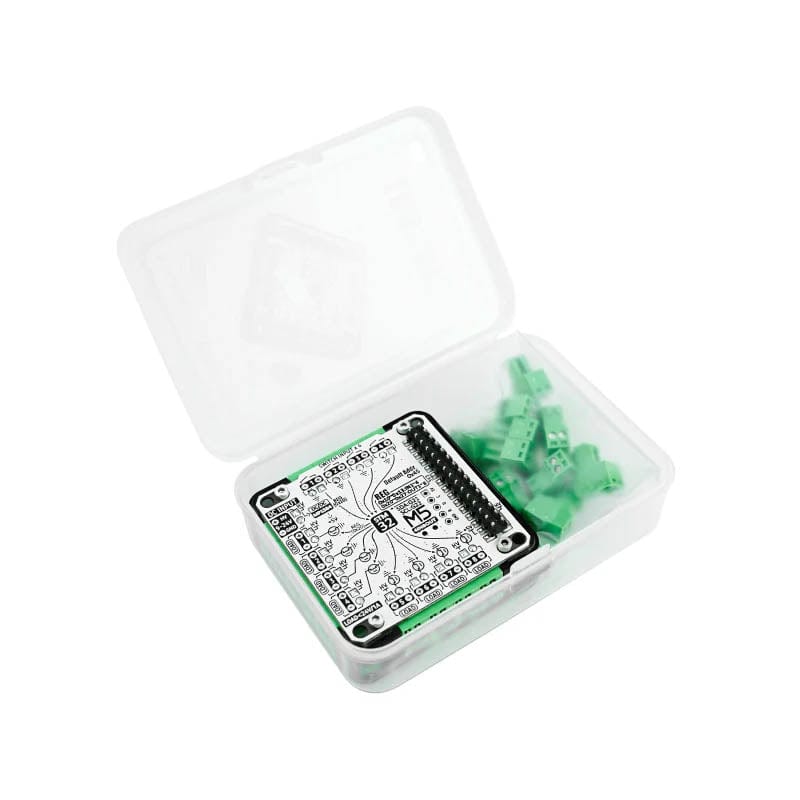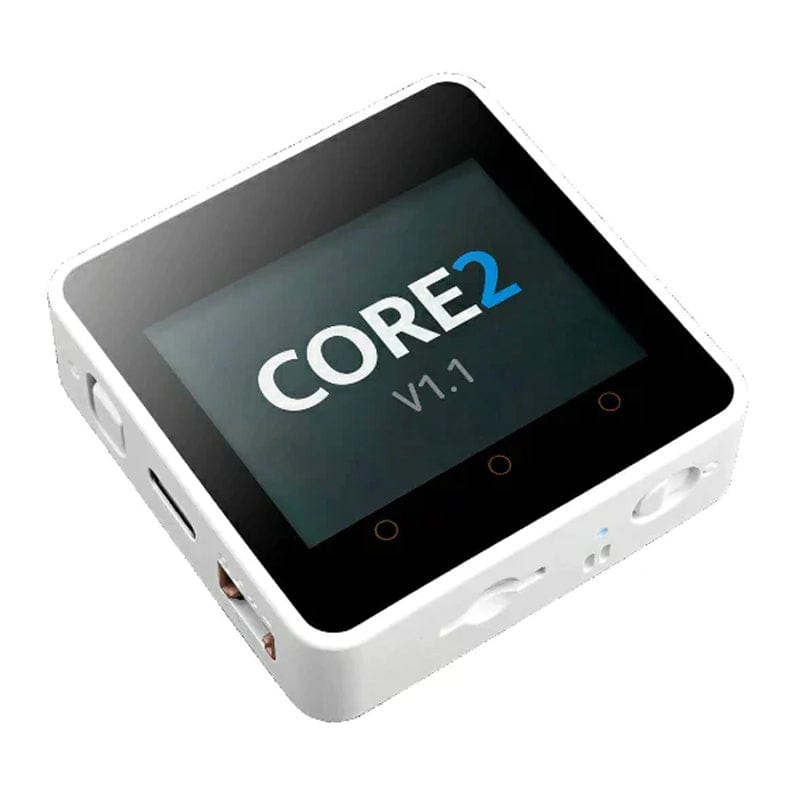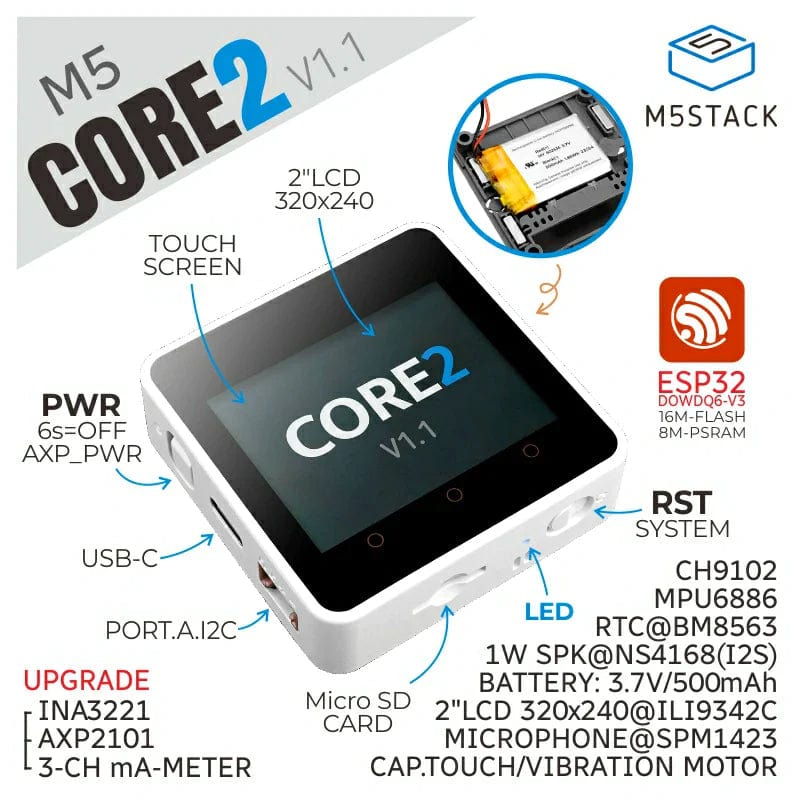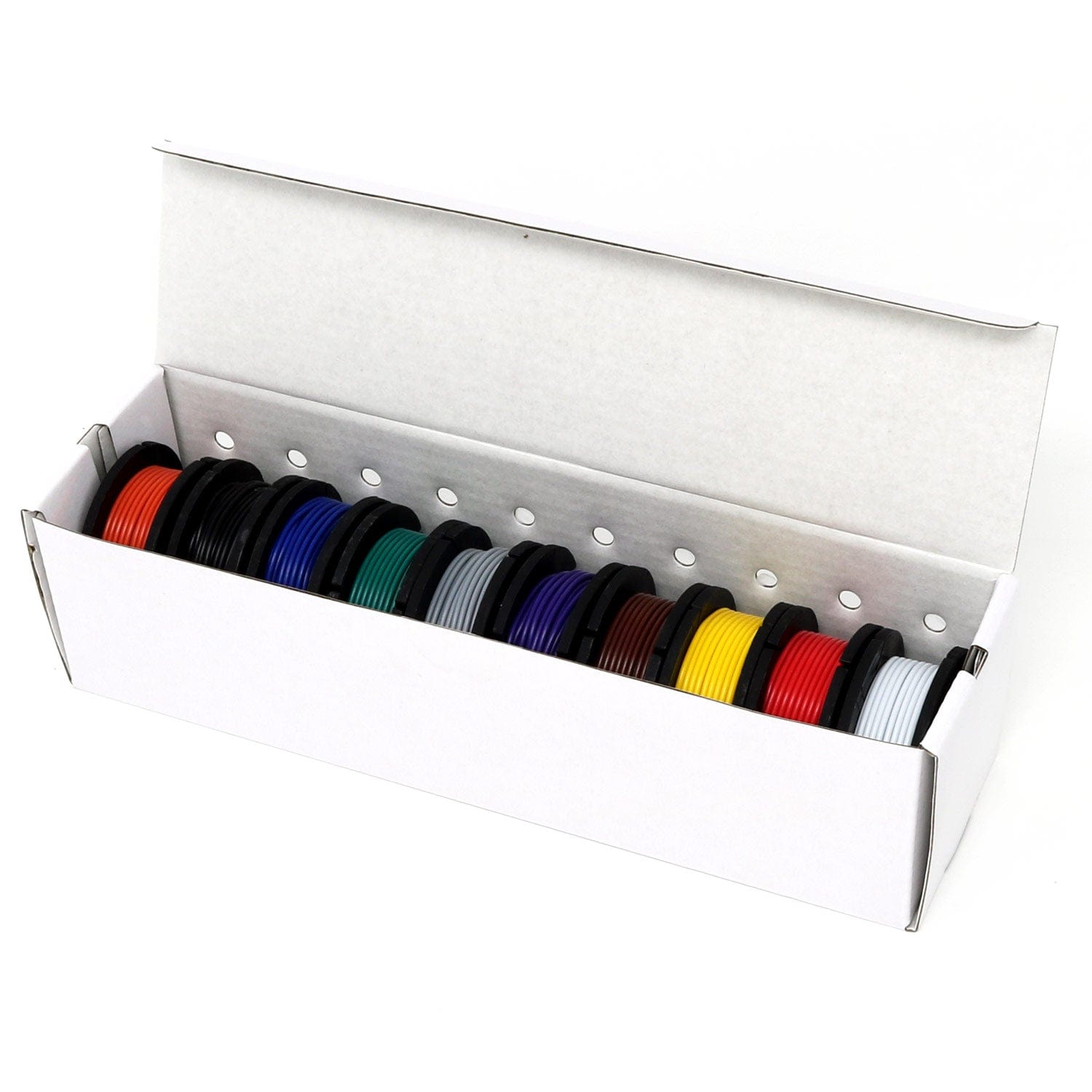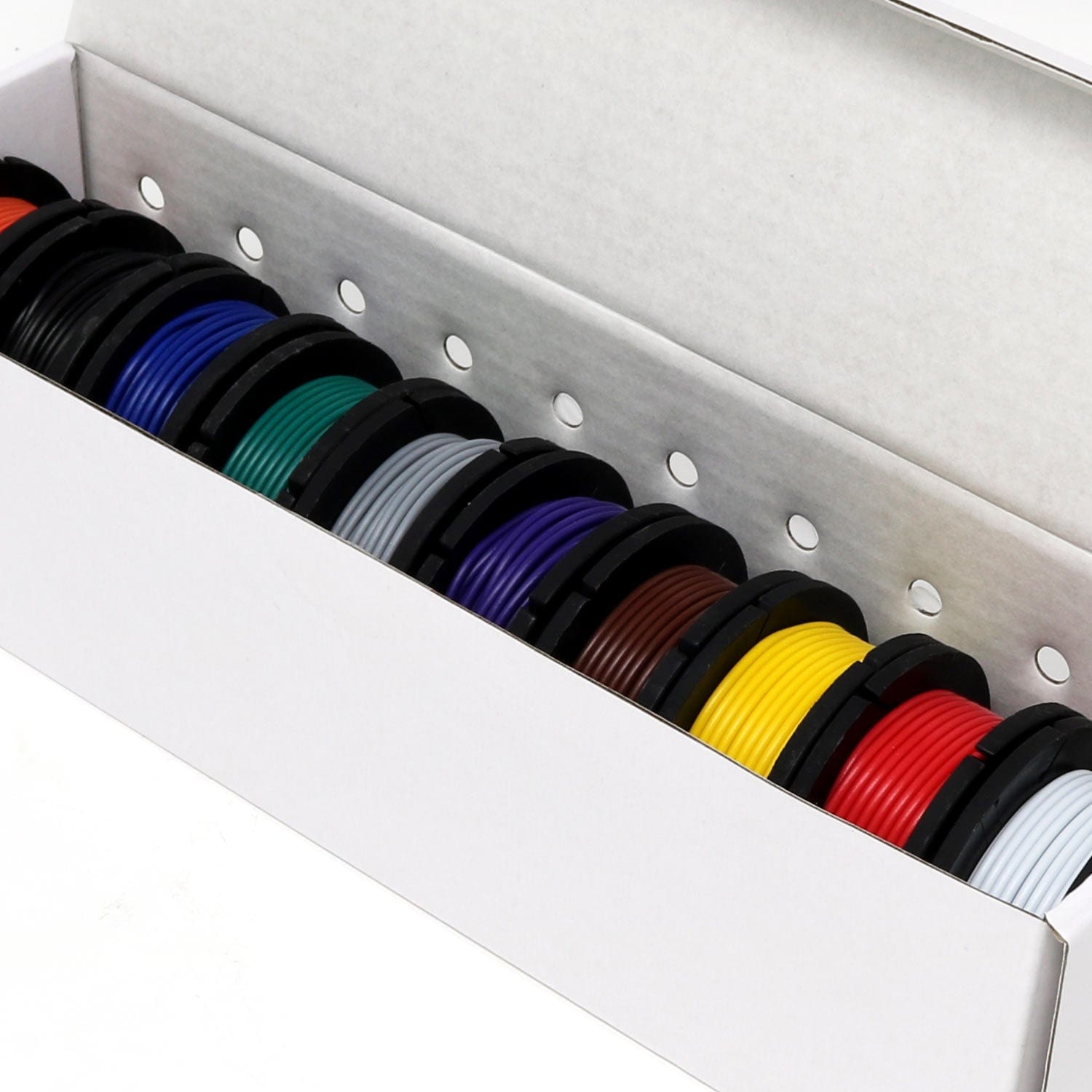M5Stack 4IN8OUT Multi-channel DC Drive Module (STM32F030)
Price:
Sale price
£16.40
Stock:
Quantity:
Login / Signup
Cart
Your cart is empty
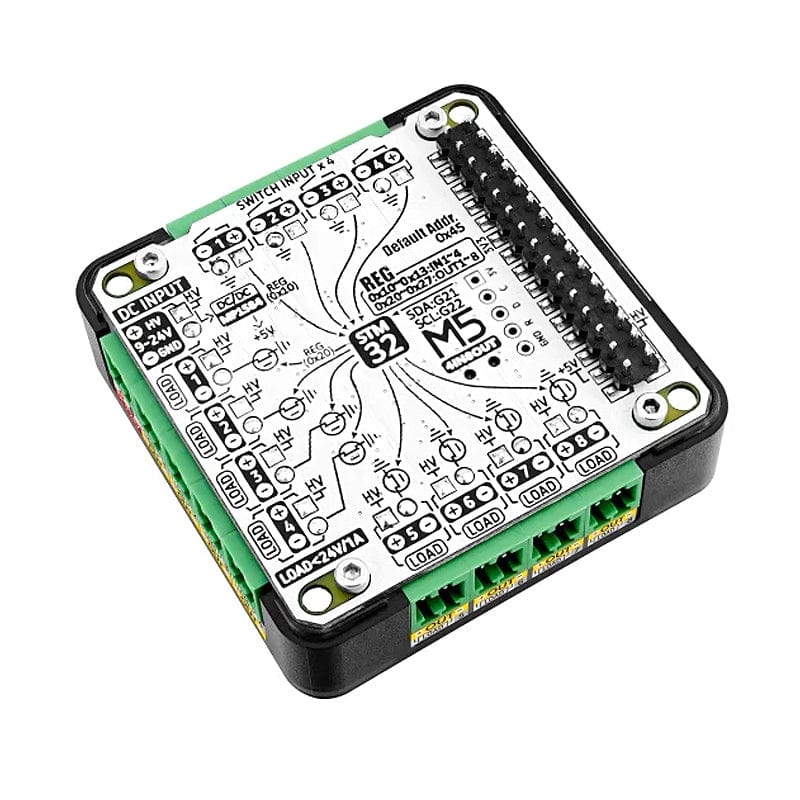
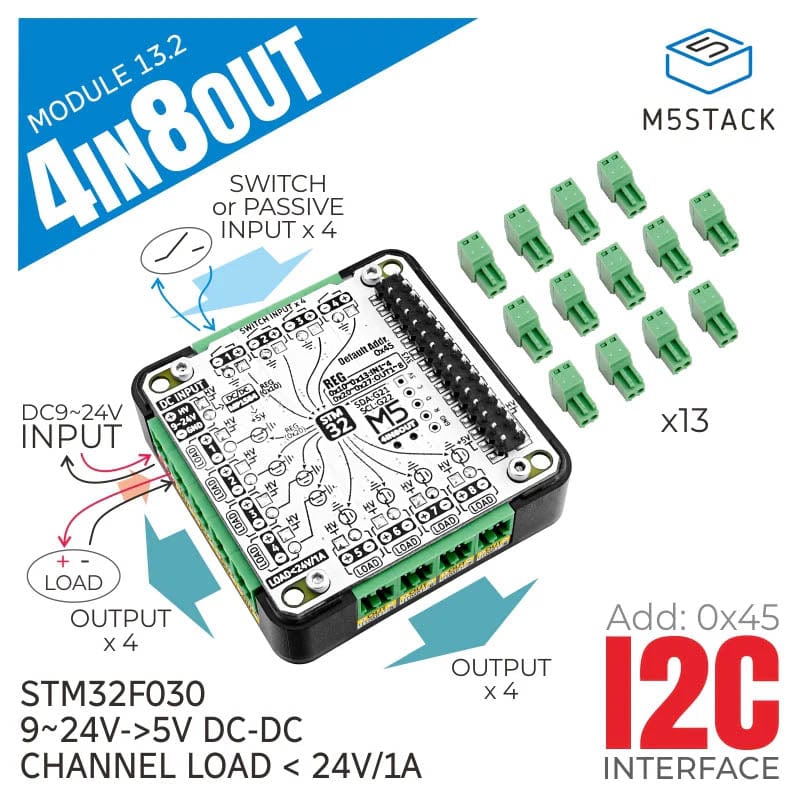
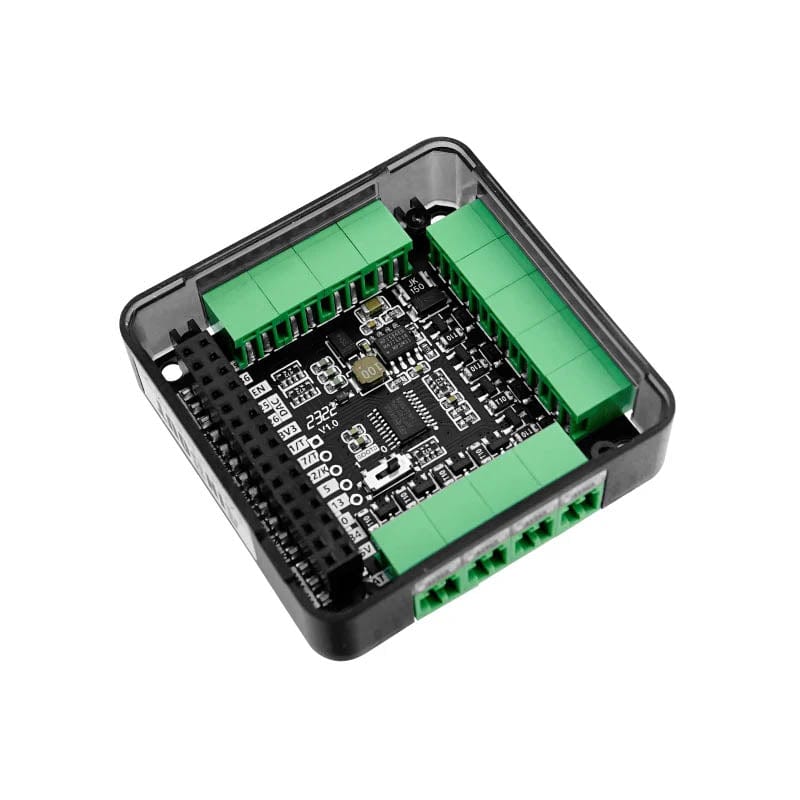
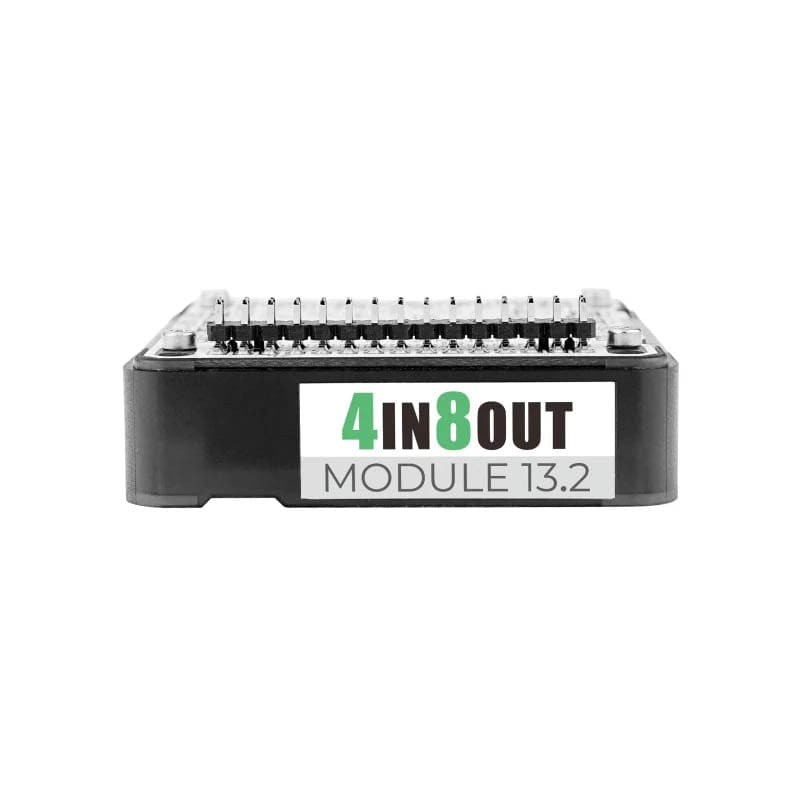
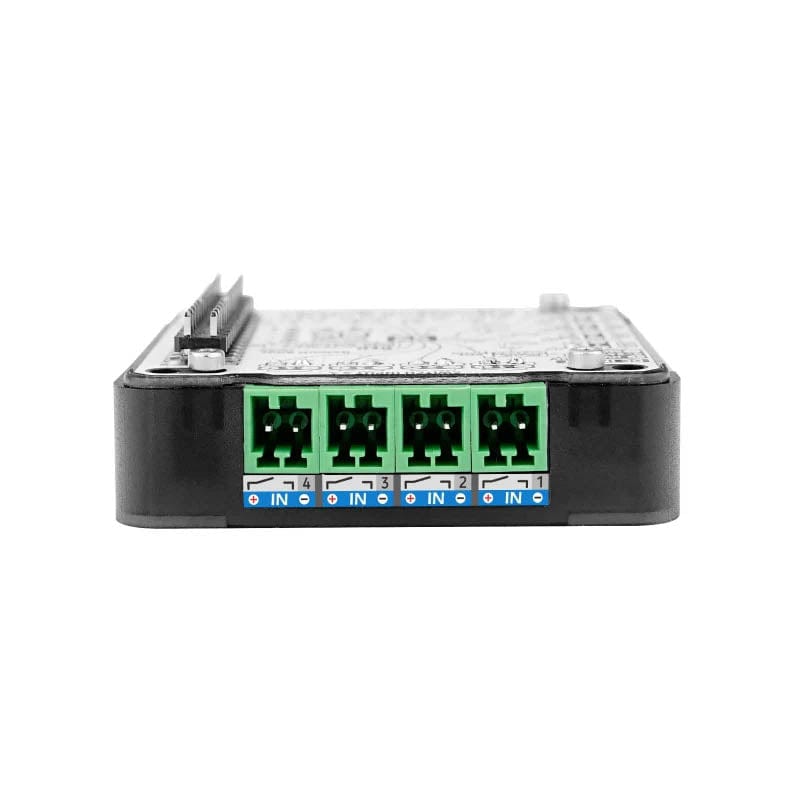
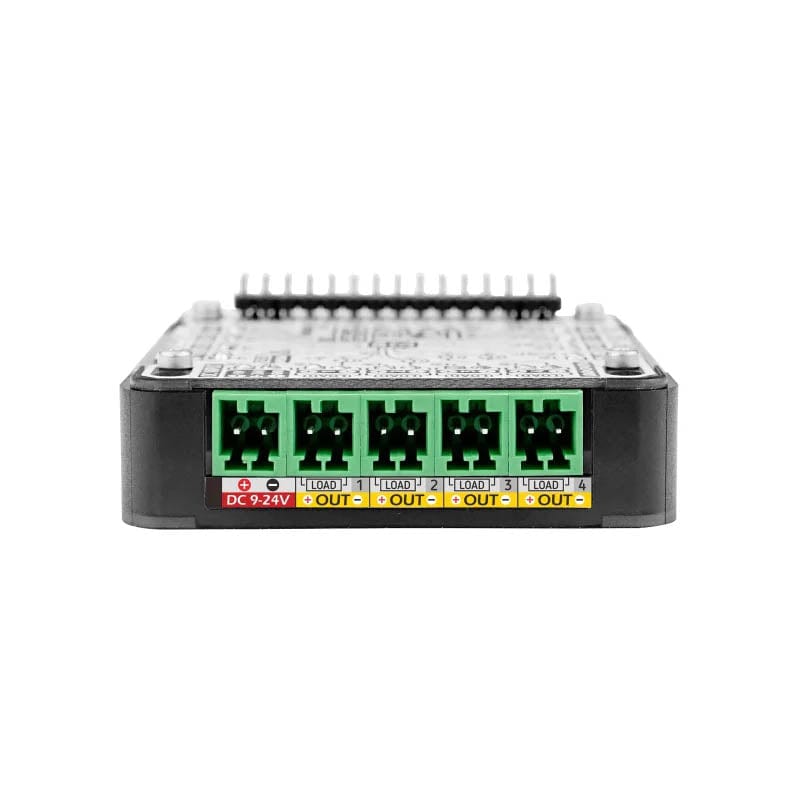
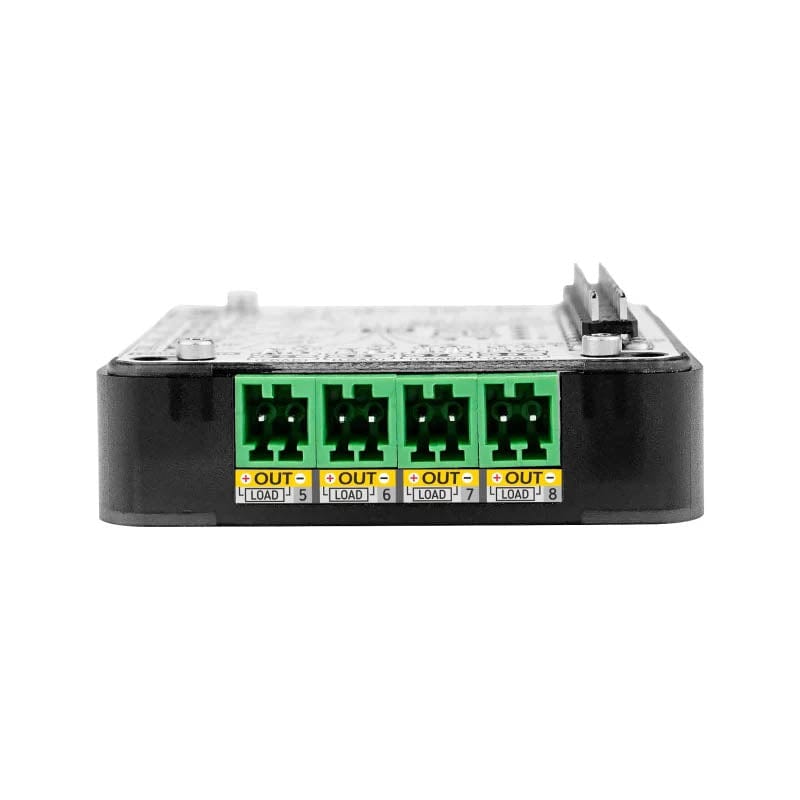
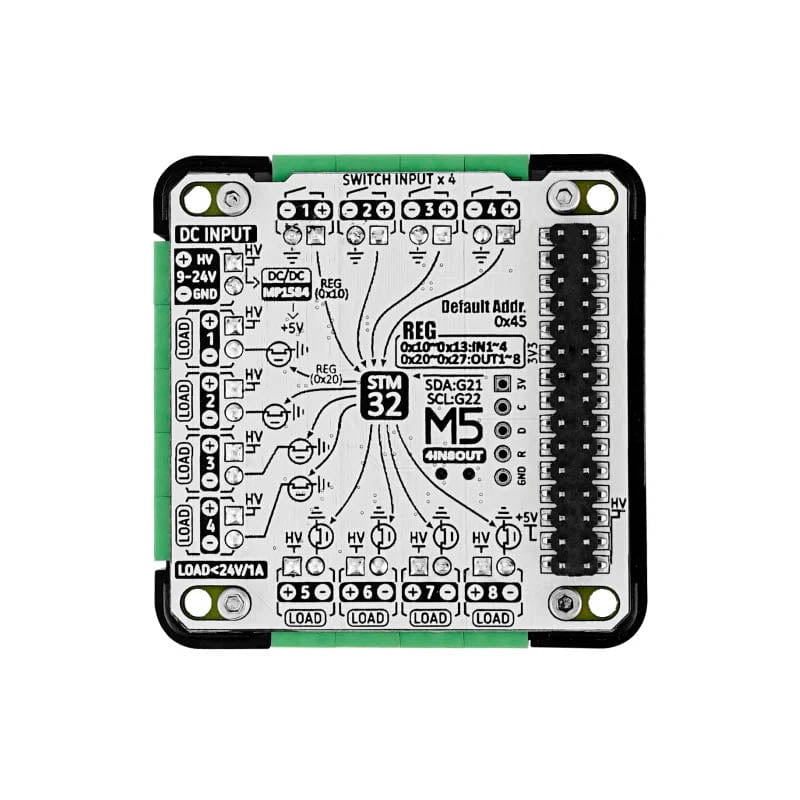
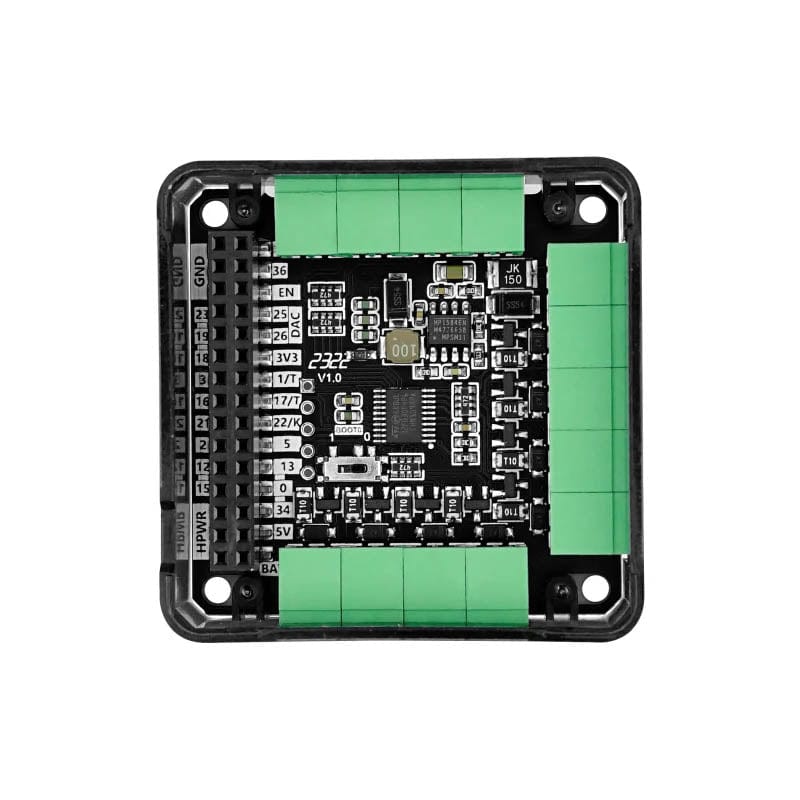
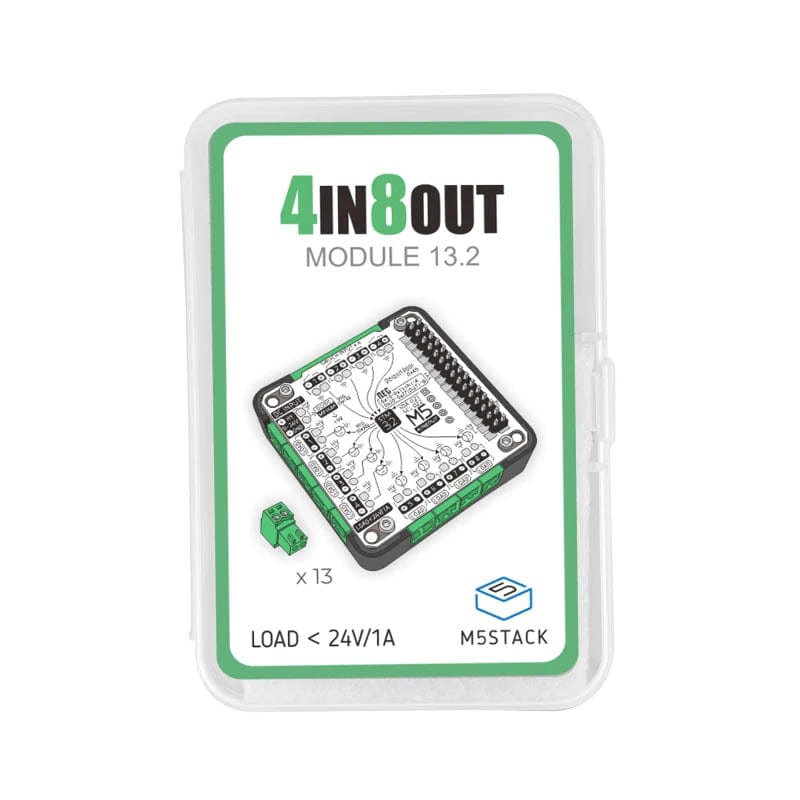
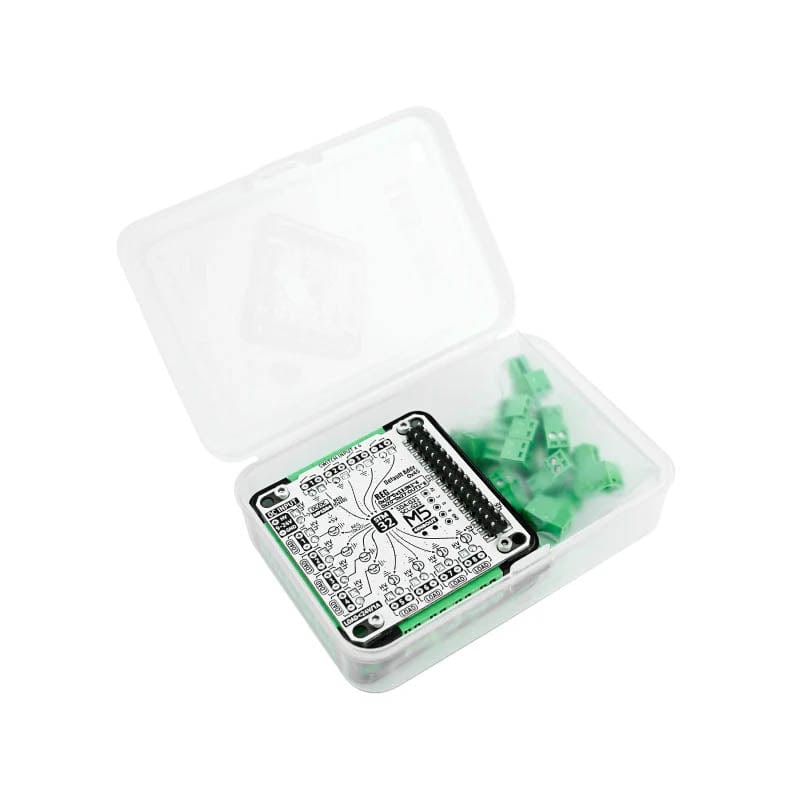
The 4IN8OUT Multi-channel DC Drive Module from M5Stack is a 4-Channel Passive Input/Switch + 8-Channel MOS Drive Output drive module.
The module adopts STM32F030 as the I2C IO chip and supports 9-24V DC input, with internal DC-DC circuitry to 5V.
| Input Voltage | 9~24V |
| Output Channel | 8 |
| Input Channel | 4 |
| Output Load | <1A each Channel |
| Communication Interface | I2C |
| I2C Address | Default 0x45, change by modifying register 0xF0 |
| Net Weight | 21.9g |
| Gross Weight | 52.5g |
| Product Size | 54*54*13mm |
| Package Size | 125*68*23mm |
| M5Core | GPIO22 | GPIO21 | 5V | GND |
| 4IN8OUT MODULE 13.2 | SCL | SDA | 5V | GND |
#include
#include "MODULE_4IN8OUT.h"
MODULE_4IN8OUT module;
int _I2C_dev_scan();
void setup() {
M5.begin(1,1,1,1); // Init M5Stack. 初始化M5Stack
// while (1) {
// _I2C_dev_scan();
// delay(1000);
// }
while (!module.begin(&Wire, 21, 22, MODULE_4IN8OUT_ADDR)) {
Serial.println("4IN8OUT INIT ERROR");
M5.Lcd.println("4IN8OUT INIT ERROR");
_I2C_dev_scan();
delay(1000);
};
Serial.println("4IN8OUT INIT SUCCESS");
}
// void loop() {
// }
long interval = 0;
bool level = false;
void loop() {
for (uint8_t i = 0; i < 4; i++) {
if (module.getInput(i) != 1) {
// M5.Lcd.fillRect(60 + 60 * i, 0, 25, 25, TFT_BLACK);
M5.Lcd.fillRect(60 + 60 * i, 0, 25, 25, TFT_GREEN);
} else {
// M5.Lcd.fillRect(60 + 60 * i, 0, 25, 25, TFT_BLACK);
// M5.Lcd.drawRect(60 + 60 * i, 0, 25, 25, TFT_GREEN);
M5.Lcd.fillRect(60 + 60 * i, 0, 25, 25, TFT_RED);
}
M5.Lcd.drawString("IN" + String(i), 40 + 60 * i, 5);
}
M5.Lcd.drawString("4IN8OUT MODULE", 60, 80, 4);
// M5.Lcd.drawString("FW VERSION:" + String(module.getVersion()), 70, 120, 4);
if (millis() - interval > 1000) {
interval = millis();
level = !level;
for (uint8_t i = 0; i < 8; i++) {
module.setOutput(i, level);
if (level) {
M5.Lcd.fillRect(20 + 35 * i, 200, 25, 25, TFT_BLACK);
M5.Lcd.fillRect(20 + 35 * i, 200, 25, 25, TFT_BLUE);
} else {
M5.Lcd.fillRect(20 + 35 * i, 200, 25, 25, TFT_BLACK);
M5.Lcd.drawRect(20 + 35 * i, 200, 25, 25, TFT_BLUE);
}
M5.Lcd.drawString("OUT" + String(i), 18 + 35 * i, 180);
// delay(50);
}
}
// if (M5.BtnB.wasPressed()) {
// if (module.setDeviceAddr(0x66)) {
// Serial.println("Update Addr: 0x66");
// }
// }
// M5.update();
delay(500);
}
int _I2C_dev_scan() {
uint8_t error, address;
int nDevices;
Serial.println("[I2C_SCAN] device scanning...");
nDevices = 0;
for (address = 1; address < 127; address++ ) {
// The i2c_scanner uses the return value of
// the Write.endTransmisstion to see if
// a device did acknowledge to the address.
Wire.beginTransmission(address);
error = Wire.endTransmission();
if (error == 0) {
Serial.print("[I2C_SCAN]: device found at address 0x");
if (address < 16)
Serial.print("0");
Serial.print(address, HEX);
Serial.println(" !");
nDevices++;
}
else if (error == 4) {
Serial.print("[I2C_SCAN]: unknow error at address 0x");
if (address < 16)
Serial.print("0");
Serial.println(address, HEX);
}
}
Serial.print("[I2C_SCAN]:");
Serial.printf(" %d devices was found\r\n", nDevices);
return nDevices;
}
